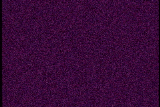Visual snow syndrome

Editor-In-Chief: Prab R Tumpati, MD
Obesity, Sleep & Internal medicine
Founder, WikiMD Wellnesspedia &
W8MD's medical weight loss NYC, sleep center NYC
Philadelphia medical weight loss and Philadelphia sleep clinics
| Visual snow syndrome | |
|---|---|

| |
| Synonyms | N/A |
| Pronounce | N/A |
| Specialty | N/A |
| Symptoms | Visual snow, palinopsia, entoptic phenomena, photophobia, nyctalopia |
| Complications | N/A |
| Onset | Typically adulthood |
| Duration | Chronic |
| Types | N/A |
| Causes | Unknown |
| Risks | Migraine, tinnitus |
| Diagnosis | Clinical diagnosis |
| Differential diagnosis | Migraine aura, hallucinogen persisting perception disorder |
| Prevention | N/A |
| Treatment | Medication, cognitive behavioral therapy |
| Medication | N/A |
| Prognosis | N/A |
| Frequency | Unknown |
| Deaths | N/A |
Visual snow syndrome is a neurological disorder characterized by a continuous visual disturbance that resembles the static or "snow" seen on a television screen. This condition is often accompanied by other visual and non-visual symptoms, which can significantly impact the quality of life of those affected.
Symptoms[edit]
The primary symptom of visual snow syndrome is the perception of tiny flickering dots across the entire visual field, which is present in all lighting conditions, including complete darkness. This visual disturbance is often described as similar to the static seen on an analog television. In addition to the primary symptom, individuals with visual snow syndrome may experience a range of other visual symptoms, including:
- Palinopsia (afterimages or trailing images)
- Photophobia (sensitivity to light)
- Nyctalopia (night blindness)
- Entoptic phenomena (seeing floaters, blue field entoptic phenomenon, or self-light of the eye)
Non-visual symptoms can also be present, such as:
- Migraine or migraine with aura
- Tinnitus (ringing in the ears)
- Derealization or depersonalization
Causes[edit]
The exact cause of visual snow syndrome is currently unknown. However, it is believed to be related to abnormal processing of visual information in the brain. Some researchers suggest that it may be linked to migraine disorders, as there is a significant overlap between the two conditions.
Diagnosis[edit]
Diagnosing visual snow syndrome can be challenging due to its rarity and the subjective nature of its symptoms. A thorough clinical evaluation is necessary, which includes a detailed patient history and a comprehensive eye examination to rule out other potential causes of the visual disturbances. Neuroimaging studies, such as MRI or CT scans, may be conducted to exclude other neurological conditions.
Treatment[edit]
There is currently no cure for visual snow syndrome, and treatment options are limited. Management of the condition focuses on alleviating symptoms and improving the patient's quality of life. Some approaches that have been explored include:
- Medications such as anticonvulsants, antidepressants, and migraine prophylactics
- Cognitive behavioral therapy (CBT) to help patients cope with the condition
- Tinted lenses or blue light filters to reduce visual discomfort
Prognosis[edit]
The prognosis for individuals with visual snow syndrome varies. Some patients may experience a reduction in symptoms over time, while others may have persistent symptoms. The impact on daily life can range from mild to severe, depending on the intensity of the visual disturbances and associated symptoms.
Research[edit]
Ongoing research aims to better understand the underlying mechanisms of visual snow syndrome and to develop more effective treatments. Studies are exploring the potential genetic, neurological, and environmental factors that may contribute to the condition.
See also[edit]
References[edit]
<references group="" responsive="1"></references>
External links[edit]
Ad. Transform your life with W8MD's Budget GLP-1 injections from $75


W8MD offers a medical weight loss program to lose weight in Philadelphia. Our physician-supervised medical weight loss provides:
- Weight loss injections in NYC (generic and brand names):
- Zepbound / Mounjaro, Wegovy / Ozempic, Saxenda
- Most insurances accepted or discounted self-pay rates. We will obtain insurance prior authorizations if needed.
- Generic GLP1 weight loss injections from $75 for the starting dose.
- Also offer prescription weight loss medications including Phentermine, Qsymia, Diethylpropion, Contrave etc.
NYC weight loss doctor appointmentsNYC weight loss doctor appointments
Start your NYC weight loss journey today at our NYC medical weight loss and Philadelphia medical weight loss clinics.
- Call 718-946-5500 to lose weight in NYC or for medical weight loss in Philadelphia 215-676-2334.
- Tags:NYC medical weight loss, Philadelphia lose weight Zepbound NYC, Budget GLP1 weight loss injections, Wegovy Philadelphia, Wegovy NYC, Philadelphia medical weight loss, Brookly weight loss and Wegovy NYC
|
WikiMD's Wellness Encyclopedia |
| Let Food Be Thy Medicine Medicine Thy Food - Hippocrates |
Medical Disclaimer: WikiMD is not a substitute for professional medical advice. The information on WikiMD is provided as an information resource only, may be incorrect, outdated or misleading, and is not to be used or relied on for any diagnostic or treatment purposes. Please consult your health care provider before making any healthcare decisions or for guidance about a specific medical condition. WikiMD expressly disclaims responsibility, and shall have no liability, for any damages, loss, injury, or liability whatsoever suffered as a result of your reliance on the information contained in this site. By visiting this site you agree to the foregoing terms and conditions, which may from time to time be changed or supplemented by WikiMD. If you do not agree to the foregoing terms and conditions, you should not enter or use this site. See full disclaimer.
Credits:Most images are courtesy of Wikimedia commons, and templates, categories Wikipedia, licensed under CC BY SA or similar.
Translate this page: - East Asian
中文,
日本,
한국어,
South Asian
हिन्दी,
தமிழ்,
తెలుగు,
Urdu,
ಕನ್ನಡ,
Southeast Asian
Indonesian,
Vietnamese,
Thai,
မြန်မာဘာသာ,
বাংলা
European
español,
Deutsch,
français,
Greek,
português do Brasil,
polski,
română,
русский,
Nederlands,
norsk,
svenska,
suomi,
Italian
Middle Eastern & African
عربى,
Turkish,
Persian,
Hebrew,
Afrikaans,
isiZulu,
Kiswahili,
Other
Bulgarian,
Hungarian,
Czech,
Swedish,
മലയാളം,
मराठी,
ਪੰਜਾਬੀ,
ગુજરાતી,
Portuguese,
Ukrainian
